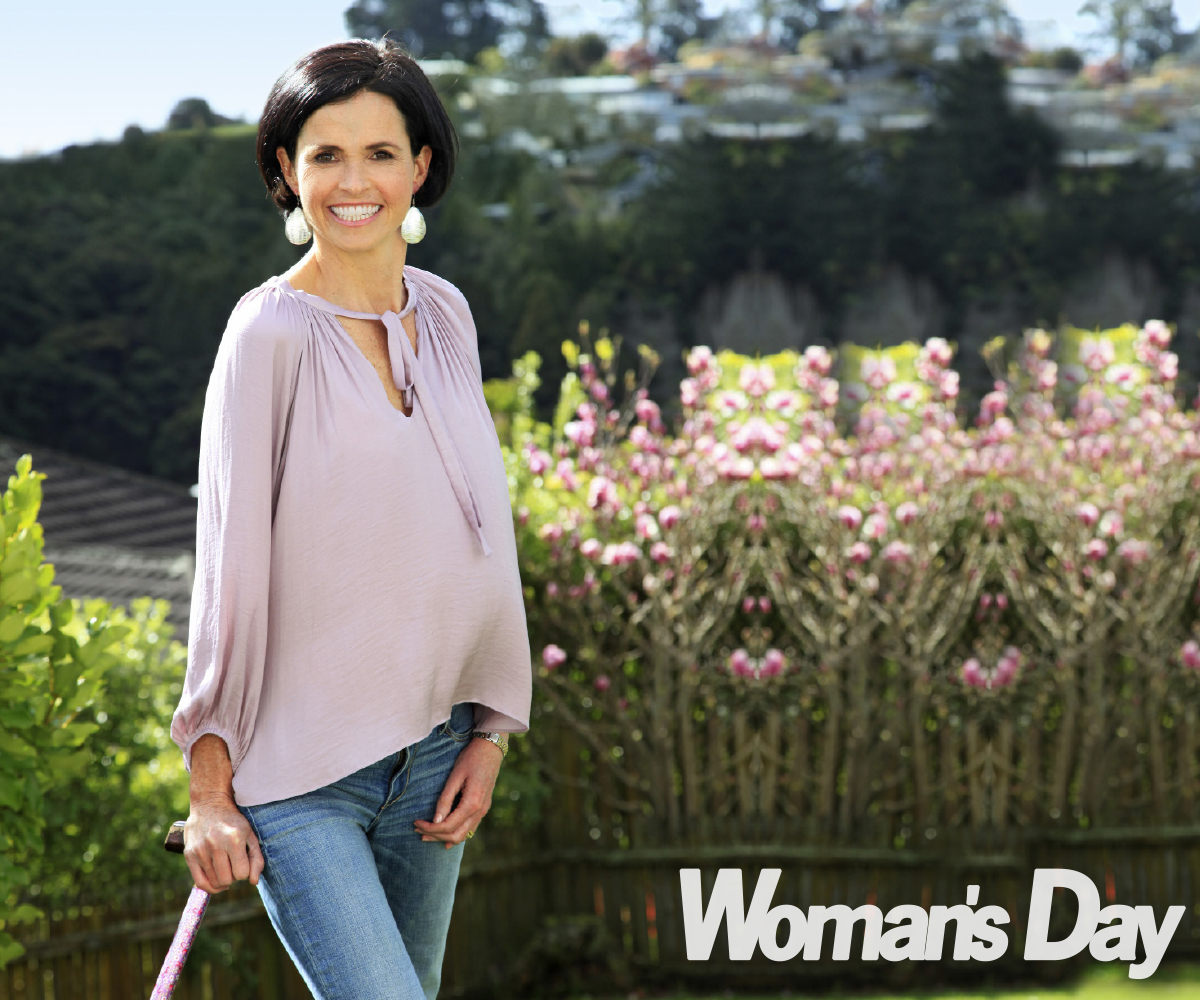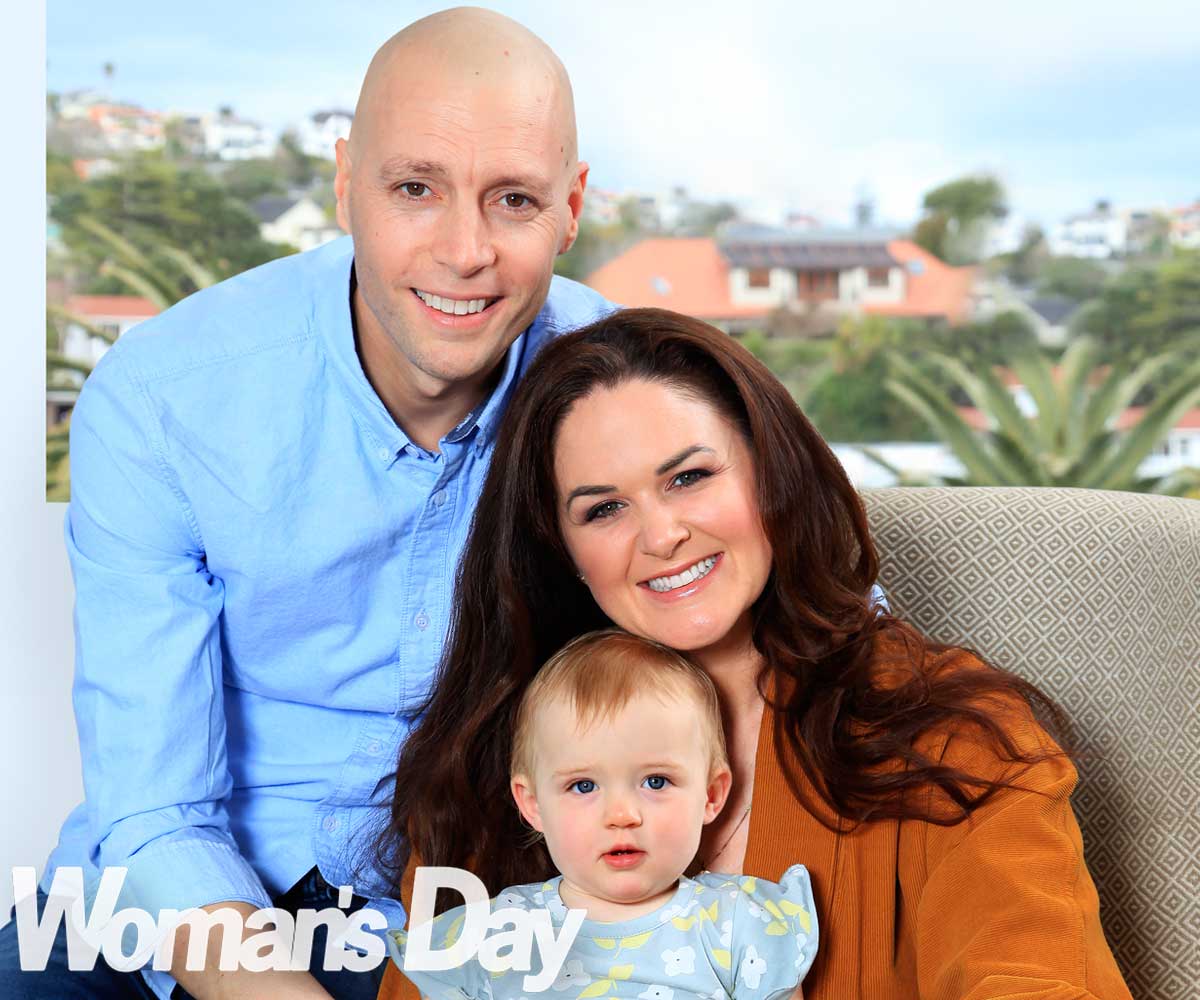Sitting at her desk in a London investment bank, Megan Sadler turned to a colleague, musing how strange it was that she’d felt pins and needles in two fingers for several days.
Weeks later, while rummaging in her handbag for house keys, the young Kiwi recruitment consultant realised she couldn’t differentiate between her phone and her wallet. She wasn’t too worried, though, putting it down to drinking a bit much and partying hard.
Soon, however, Megan could only type with one hand because her other arm felt like concrete had been poured into it. Just 27 at the time and “super- active” while on her OE, she was diagnosed with multiple sclerosis (MS), a disorder that attacks the central nervous system, which led Megan and her fiancé Paul to return to marry and live in New Zealand.

Megan and Paul on their wedding day
Now the 44-year-old Auckland mum-of-three is sharing her experience of the debilitating disease for MS Awareness Week (September 3 to 9), revealing she’s been given a ray of hope for her future mobility in the form of a Segway.
Her aim is that the two-wheeler will not only transport her indoors and out, but also help her keep up with her energetic daughters, Mia, 12, and twins Alexandra and Paige, nine.
She explains, “MS affects everyone differently. I have been walking with a stick for the past six years, and I am at the stage now where my muscles are getting weaker and walking any distance is difficult. “But I want to stay upright for as long as I can. Sometimes I feel like I let my girls down because of my restricted movement and the extreme fatigue means I can’t do a lot or go many places. As a mother, that’s the hardest part. But once I meet my fundraising target for a Segway, I won’t miss out on so much life – I will be able to get to the netball courts more easily to watch my girls play and make it to their Rippa Rugby tournaments.”
She adds these are often the hardest places for her to navigate, especially if it’s slippery and with differing terrains to get to the side of the field.

Paul and Megan with their twin daughters Alexandra and Paige
Hope on wheels
It was while attending a course six years ago on coping with MS fatigue that Megan first saw a Segway being used by a fellow sufferer who lived on a farm and rounded up her cows on it.
“On the last day of the course, she asked if I wanted to have a little blat around in the car park,” she says. “I just went, ‘Wow!’ And I kept the idea of it in the back of my mind until this year, when I started having quite a few falls, which have been devastating and mortifying in public.
“Often with MS, people tell me, ‘Use it or lose it,’ and I hate that phrase so much! It’s very negative. So I’ve changed it to, ‘The more I do, the more I can do.’ And it’s my firm belief to try to keep doing as much as possible.”
Thanks to the generosity of donors on crowdfunding site Givealittle, the determined mum is close to realising her dream and is just weeks away from buying her new set of wheels.

Megan says having a segway means she won’t “miss out on so much life”
Megan believes the biggest lesson she’s learned in her MS journey has been to accept the illness. When her twins were six months old, she was referred through the public health system to a psychologist who visited her at home for a year, completely changing her mindset and attitude.
Recalls Megan, “Before seeing the psychologist, I would find it hard to even take a drive along the street because I’d see mums walking with buggies and think, ‘I can’t do that.’ Or going to the supermarket, I’d burst into tears after every shop because I was jealous of seeing people being able to do it so easily and quickly.
“I never accepted having MS because for me to accept it was to lie back and let it take over. However, he taught me that to accept it actually meant I could stand up and fight it. That was huge for me.”
Tapping her head, she adds, “Now I encourage other newly diagnosed women coming through my MS Society hydrotherapy group to get some help for ‘up here’.”

Megan is looking forward to being the ‘cool mum’ at school once her segway arrives.
Top of the list of things Megan is most looking forward to doing on her Segway is “walking” the beach with her family. “Gliding along beside them as they walk at a normal pace and being able to talk with them at the same time will be amazing,” she enthuses. “Usually when I walk – and it’s very slowly – I’m concentrating so hard on bending my knee and lifting my foot. So many things are going on that to actually hold a conversation is really hard.
“It will make me feel like a ‘normal mum’. And maybe it’ll make me be the cool mum at school for a little bit too,” she laughs.


